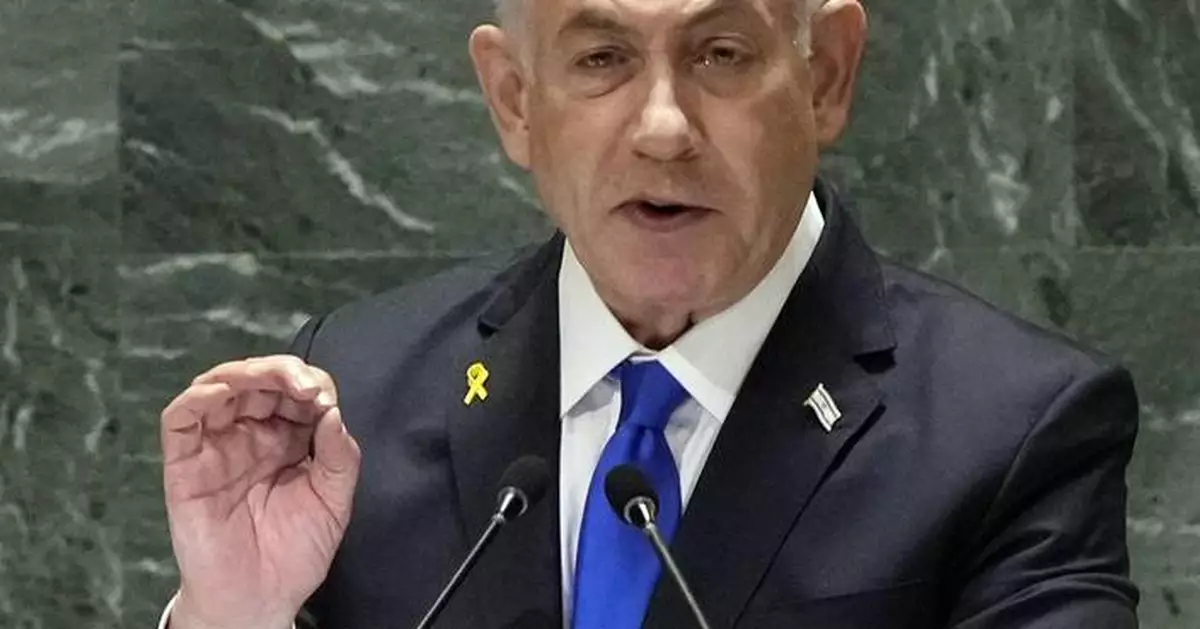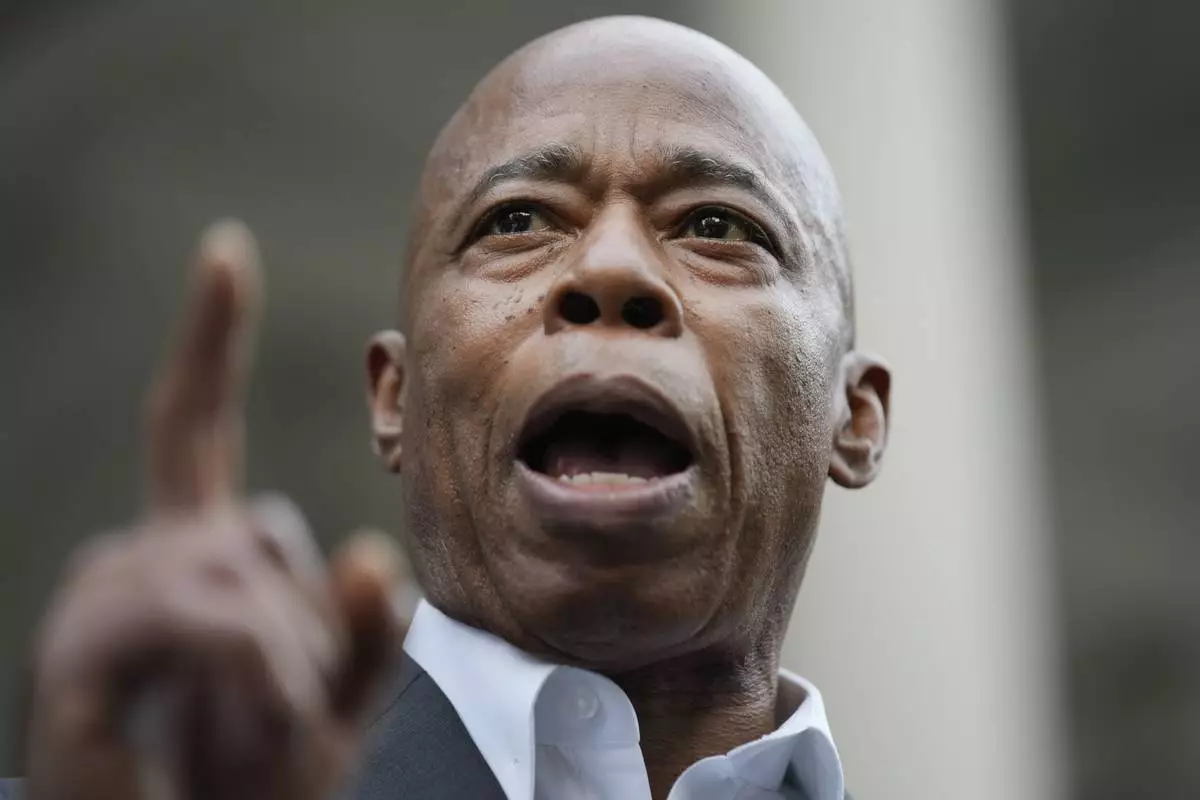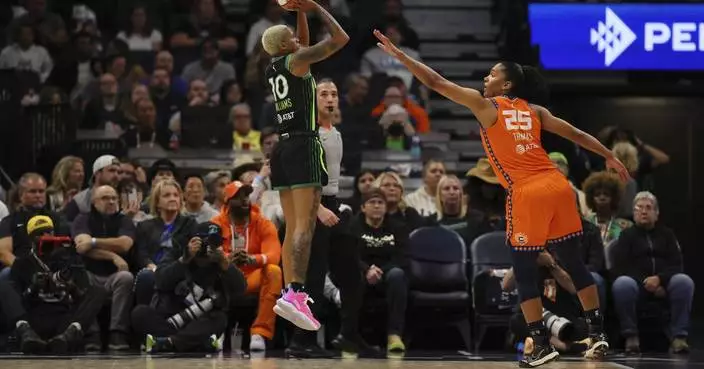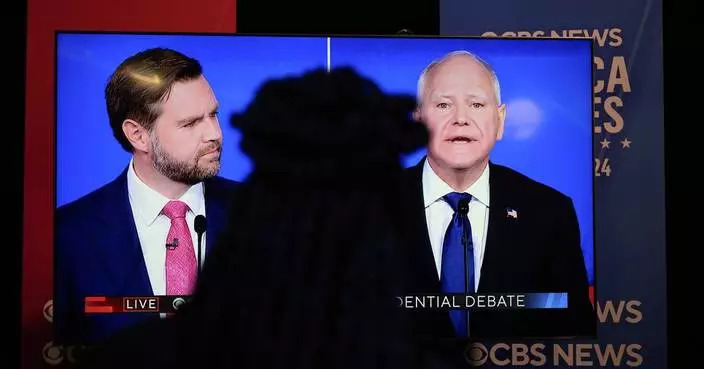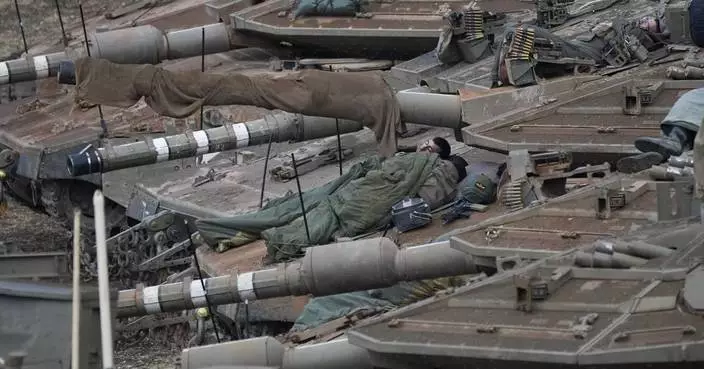WASHINGTON (AP) — After a year of war between Israel and Hamas, U.S. public opinion on the conflict remains polarized, a new survey by the Pearson Institute and The Associated Press-NORC Center for Public Affairs Research finds, with Democrats more likely to be critical of Israel, while Republicans remain more supportive.
There are a few points of relative consensus — about half of U.S. adults, for example, say Hamas bears “a lot” of responsibility for the continuation of the war, while about one quarter says it has “some” responsibility and about 2 in 10 say it has “not much” responsibility or “none at all.”
But U.S. adults remain divided on the extent to which the Israeli government is responsible for the conflict continuing. And the findings indicate that the past year of war hasn’t done much to widen or narrow the partisan gulf that existed early in the conflict.
Democrats remain more sympathetic toward the Palestinians than Republicans and more critical of Israel, while Republicans are more likely to sympathize with the Israelis and view Israel as a U.S. ally that shares the United States' values and interests.
However, it’s unclear from this survey if public opinion will shift as the war in the Middle East expands beyond Gaza. It was conducted from Sept. 12 to 16, before Israel’s military significantly escalated its operations against Hezbollah in Lebanon and before Iran launched missiles at Israel on Tuesday. Hamas, based in Gaza, and Hezbollah, based in Lebanon, are militant groups allied with Iran.
President Joe Biden has maintained crucial U.S. military support to Israel throughout the Gaza war, while repeatedly trying — and failing — to broker a cease-fire. Americans are most likely to place “a lot” of blame on Hamas for the continuation of the war between Israel and the militant group, followed by the Israeli government, and the Iranian government and groups backed by Iran.
They place much less responsibility on their own country. Only about 1 in 10 Americans say the U.S. government bears “a lot” of responsibility for the continuation of the war between Israel and Hamas, while about 4 in 10 say it bears “some” responsibility, and 45% say the U.S. bears “not much” or no responsibility at all.
Democrats are slightly more likely than Republicans to say the U.S. has “some” responsibility, but overall the partisan differences on this question are small.
Brian Grider, a 48-year-old Republican from Moscow, Ohio, isn't sure how the U.S. could defuse the conflict.
“I don’t know if there’s anything we can do,” he said. “It would be nice if we could and we might want to try, but is it going to work? Probably not.”
The year of fighting appears to have calcified the partisan divide on the war and the U.S. relationship with Israel.
About half of Republicans view Israel as an ally of the U.S. that shares its values and interests, while about half of Democrats think Israel is a partner that the U.S. should cooperate with but that doesn't share American values and interests.
More than half of Democrats also say the Israeli government bears “a lot” of responsibility for the continuation of the war, compared to about 4 in 10 Republicans.
Brian Becker, a 49-year-old Democrat in Colorado, says his views of the war shifted after hearing more on social media about Palestinians and Palestinian Americans who were harmed by the war.
“I didn’t feel like that was fair for them,” Becker said. “So that did start to change my mind a little bit, started to give that waver of support to Palestine,” he said. “Where before I probably would have been just, ‘Yeah, go Israel.”’
On the other hand, about half of Republicans say they sympathize more with the Israelis than the Palestinians, while Democrats are more likely to say they sympathize with both groups equally.
Grider, the Ohio Republican, thinks Israel responded appropriately to the Oct. 7 attack, comparing it to the Sept. 11, 2001 attacks in the U.S.
“I definitely don't think Israel is doing too much in response to what happened to them,” he said.
Views of the Israel-Hamas conflict, and the U.S. role in mediating it, haven't shifted much over the course of the year.
Support for the establishment of an independent Palestinian state rose slightly, from around 2 in 10 in August 2023 to about 3 in 10 now. (About half of Americans currently say they neither favor nor oppose an independent Palestinian state, and about 2 in 10 are opposed.) There was also a slight uptick in the share of Americans who think the U.S. is too supportive of Israel.
But about 4 in 10 U.S. adults continue to say the U.S. is spending “too much” on military aid to Israel in the war, while a similar share say the U.S. is spending “the right amount." About 1 in 10 say the U.S. is spending “too little,” which is in line with an AP-NORC poll conducted in early 2024.
The mix of U.S. opinions on the Gaza war reflects the complexity of a conflict where Americans may see bad actors and innocent victims on both sides, according to Paul Poast, a political scientist at the University of Chicago and a research affiliate of the Pearson Institute.
“This leads to people having very strong views on both sides, which, of course, we’ve seen,” Poast said. And it doesn’t, he added, make for “a consistent narrative of, ‘We’ve got to support Israel,' or 'We’ve got to support the Palestinians.’”
Hamas killed about 1,200 people in Israel on Oct. 7 and took hostages, some of whom are still being held in Gaza. Israel’s military campaign in Gaza has killed more than 41,000 Palestinians. Gaza health officials do not distinguish between civilians and combatants in their death toll but say many of those killed are women and children.
Charles Jolivette, a 42-year-old Democrat in New Orleans who developed concerns about Israel’s offensive through discussions with friends and colleagues who have Palestinian heritage, has observed a kind of echo-chamber effect, where people on the different sides of the issue seem to only hear views that reflect their own beliefs.
“But I would love to have some more,” Jolivette said, referring to exchanges of view with people who see the conflict differently. And for "not only mainstream media, but the mainstream American populace, to have that ability to have these real conversations.”
The poll of 1,111 adults was conducted using a sample drawn from NORC’s probability-based AmeriSpeak Panel, which is designed to be representative of the U.S. population. The margin of sampling error for all respondents is plus or minus 3.95 percentage points.
__
Ellen Knickmeyer contributed.
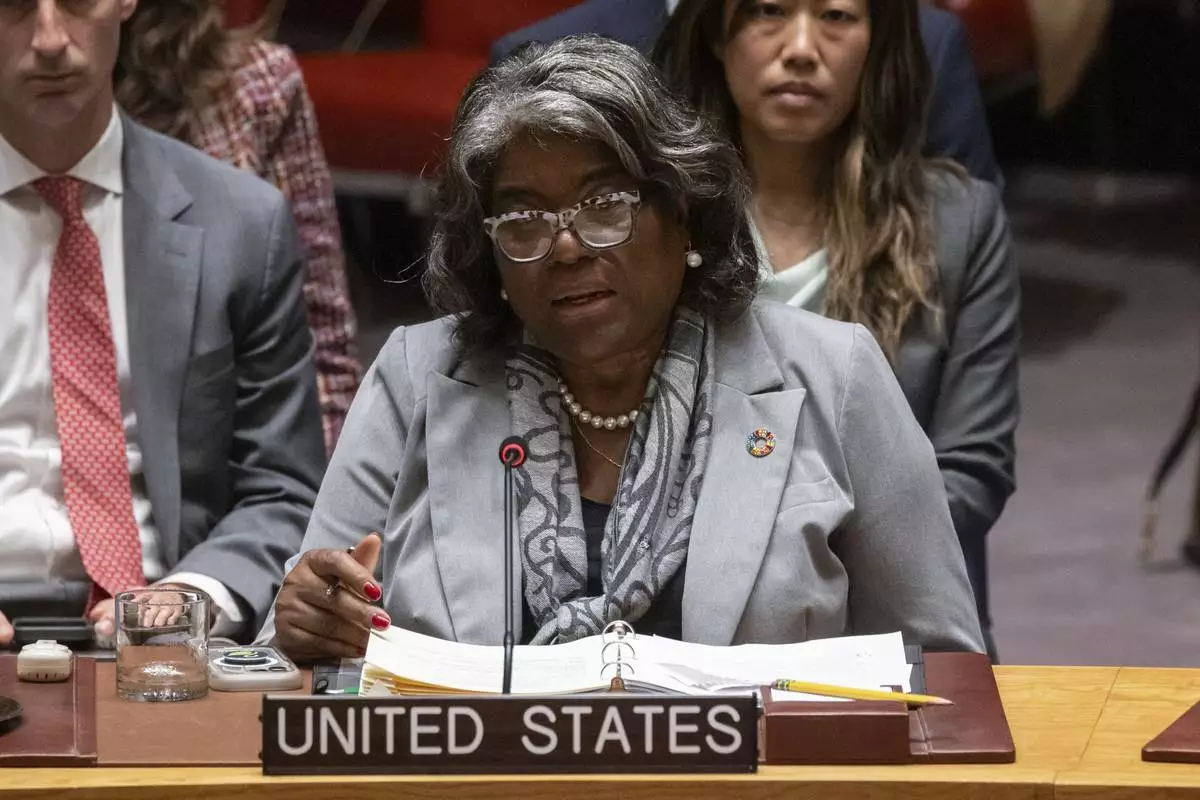
U.S. Ambassador to the U.N. Linda Thomas-Greenfield speaks during a Security Council meeting at United Nations headquarters, Friday, Sep. 27, 2024. (AP Photo/Yuki Iwamura)
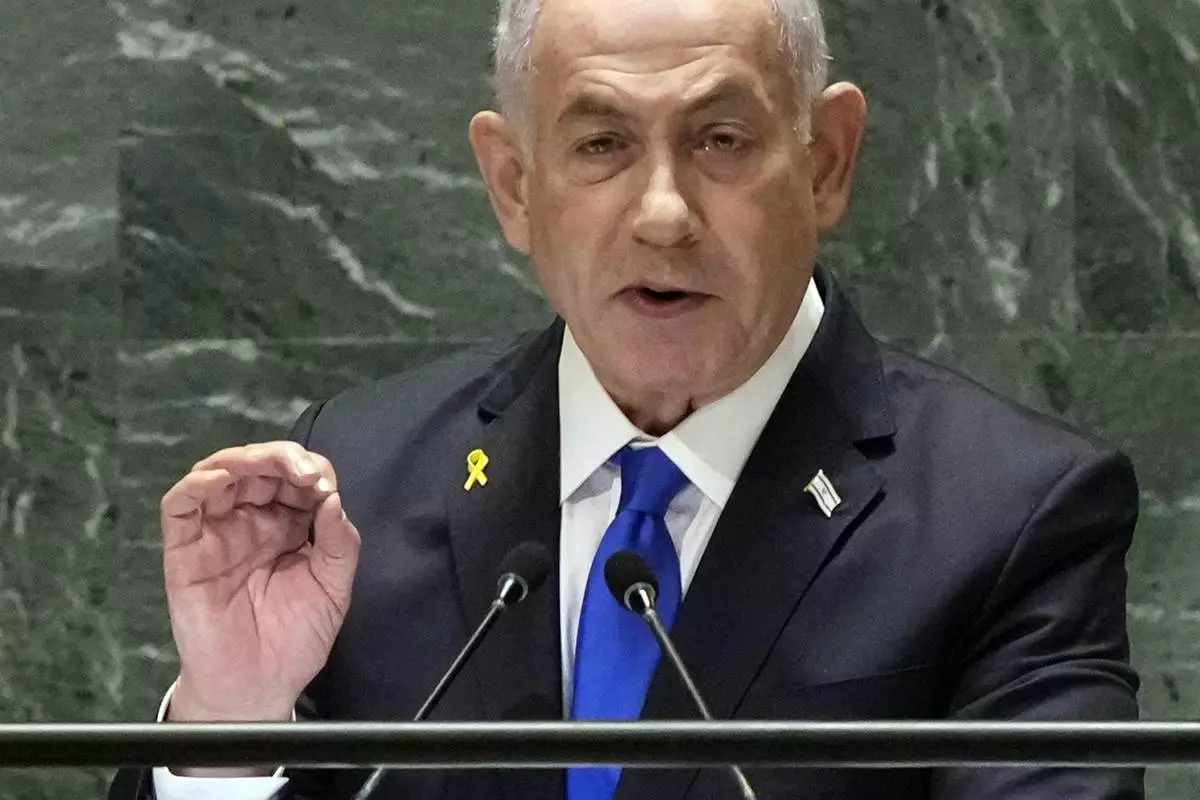
Israel Prime Minister Benjamin Netanyahu addresses the 79th session of the United Nations General Assembly, Friday, Sept. 27, 2024. (AP Photo/Richard Drew)


